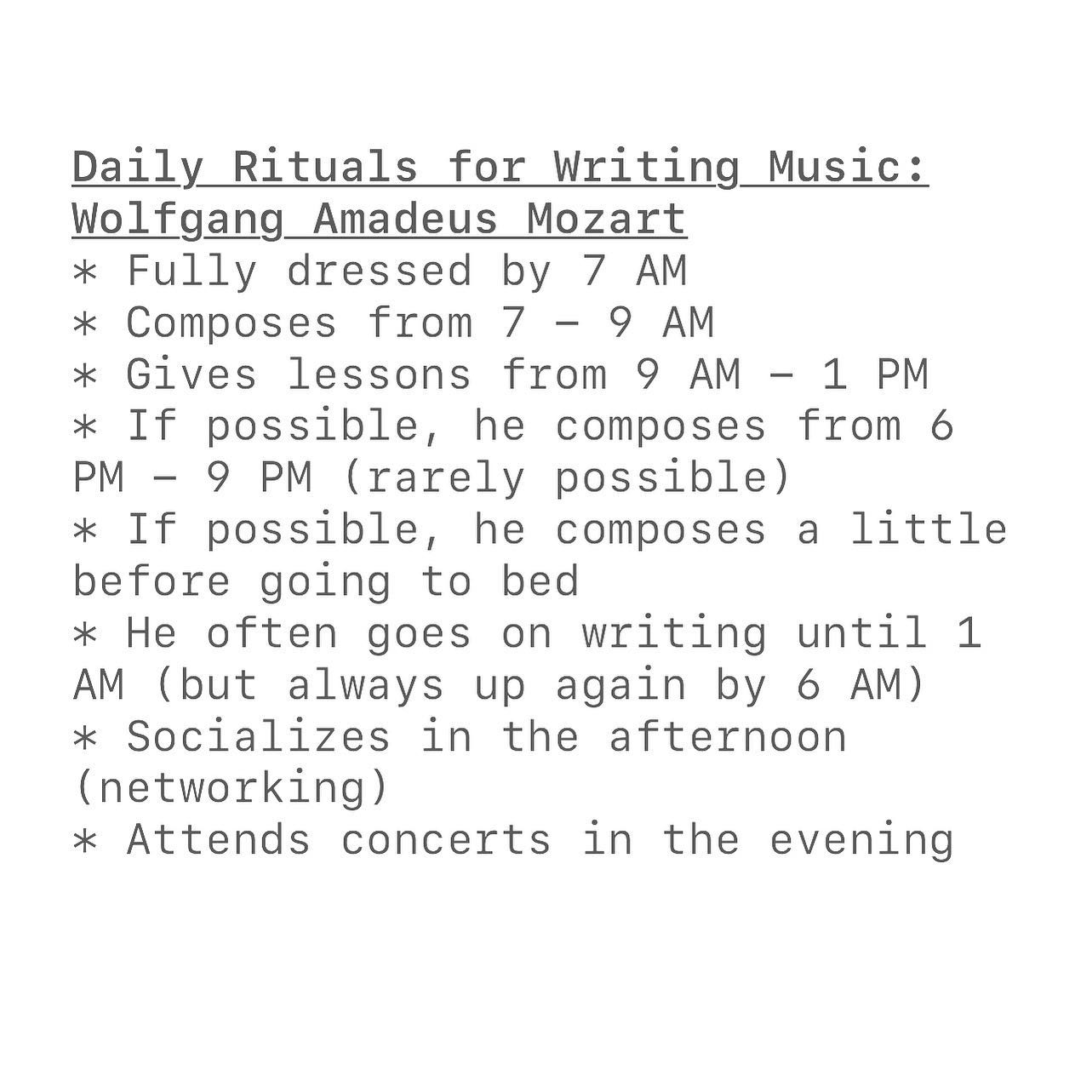
As the world of music keeps changing, songwriters like you are always on the lookout for inspiration and guidance from some of the best composers in history.
Take Wolfgang Amadeus Mozart, for example. His groundbreaking techniques can take your songwriting skills to a whole new level.
In this easy-to-follow guide, we'll dive into Mozart's unique approach, share some priceless advice, and give you practical tips that'll help you fine-tune your creative process.
The Mozart Effect: Harnessing Genius in Your Songwriting
Structuring Your Compositions
Mozart was known for his symmetrical and balanced compositions. He skillfully weaved themes and motifs throughout his works, creating a sense of unity and harmony. Apply this concept to your songwriting by:
- Establishing clear themes: Develop a central theme or message for your song and ensure that each verse, chorus, and bridge contributes to the overall narrative.
- Balancing repetition and variation: Skillfully use repetition to create familiarity and variation to maintain interest in your composition.
- Employing counterpoint: Enhance your song's texture by layering melodies and harmonies that complement one another.
Tapping into Your Emotional Well
Mozart's music is celebrated for its emotional depth, encompassing a wide range of moods and expressions. To imbue your songs with emotion:
- Channel your feelings: Reflect on your experiences and emotions, and incorporate them into your lyrics and melodies.
- Utilize dynamics: Experiment with changes in volume and intensity to convey different emotions.
- Incorporate tempo variations: Explore varying tempos to enhance the emotional impact of your song.
Innovative Techniques to Elevate Your Songwriting
Unleashing Your Creativity with Constraints
Mozart often composed using specific constraints, such as writing for a particular instrument or adhering to a specific style. Embrace constraints in your songwriting by:
- Setting limitations: Challenge yourself to write within a specific genre, key, or time signature.
- Exploring unconventional structures: Experiment with atypical song structures or alternate between various forms.
- Adapting to your resources: Embrace the limitations of your available instruments, recording equipment, or production tools, and use them to fuel your creativity.
Collaborating with Others
Mozart frequently collaborated with other musicians, enriching his compositions and broadening his creative horizons. Enhance your songwriting through collaboration by:
- Seeking out like-minded artists: Identify fellow musicians who share your artistic vision and passion for music.
- Embracing diverse perspectives: Welcome input from individuals with different backgrounds, genres, and experiences.
- Building a supportive community: Foster relationships with other songwriters and cultivate a creative support network.
Streamlining Your Songwriting Workflow
Developing a Consistent Routine
Mozart was known for his tireless work ethic and commitment to his craft. Establish a routine that promotes productivity and consistency in your songwriting:
- Setting aside dedicated time: Carve out regular, uninterrupted time for songwriting and adhere to a consistent schedule.
- Establishing goals: Set realistic objectives for your songwriting, such as completing a specific number of songs within a given timeframe.
- Monitoring your progress: Regularly review your work and track your accomplishments, adjusting your goals as necessary.
Cultivating Mindfulness and Focus
Mozart's ability to concentrate deeply on his work allowed him to excel in his craft. Develop your focus and mindfulness by:
- Minimizing distractions: Designate a dedicated workspace for songwriting, free from unnecessary interruptions and noise.
- Practicing meditation: Incorporate mindfulness exercises into your daily routine to enhance concentration and reduce stress.
- Taking breaks: Schedule periodic breaks during your songwriting sessions to prevent burnout and maintain mental clarity.
Analyzing and Learning from Mozart's Masterpieces
Studying Mozart's Compositions
Mozart's vast catalog of works offers a treasure trove of inspiration and learning opportunities. Deepen your understanding of his genius by:
- Analyzing his music: Dissect the structure, harmony, and melodies of Mozart's compositions to identify recurring patterns and techniques.
- Listening actively: Engage with Mozart's music attentively, focusing on specific elements such as instrumentation, dynamics, or thematic development.
- Applying your insights: Incorporate your observations and discoveries from Mozart's works into your own songwriting practice.
Expanding Your Musical Knowledge
While Mozart's contributions to music are invaluable, it's essential to explore other composers and styles to foster a well-rounded approach to songwriting:
- Diversifying your influences: Delve into the works of various composers across different genres and eras.
- Attending concerts and workshops: Immerse yourself in live music experiences and attend workshops or masterclasses led by accomplished musicians.
- Studying music theory: Enhance your understanding of music by learning the principles and concepts governing its creation.
When you tap into the wisdom and techniques of Mozart and other great composers, you can refine your songwriting process, fulfill your creative potential, and become a prolific composer.
So stay dedicated to your craft and model Mozart.


